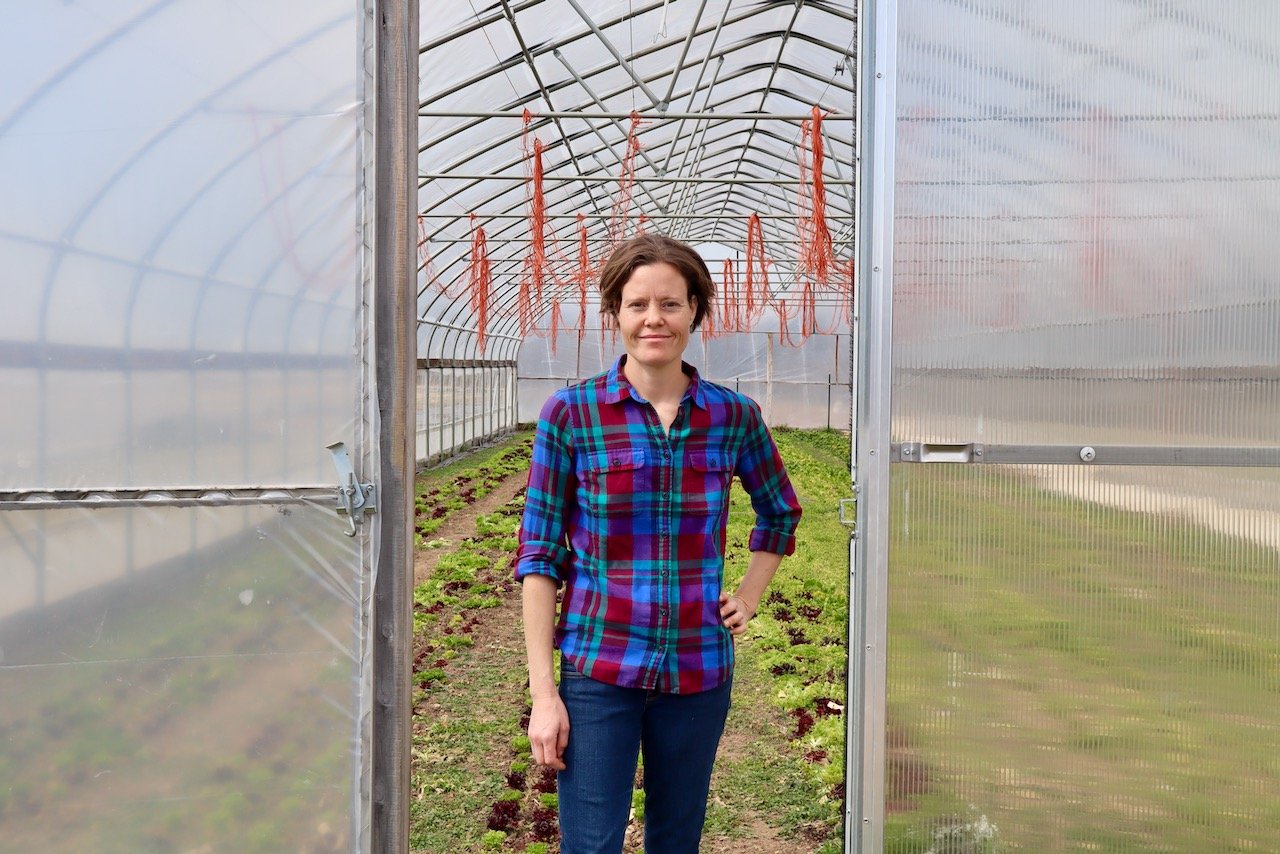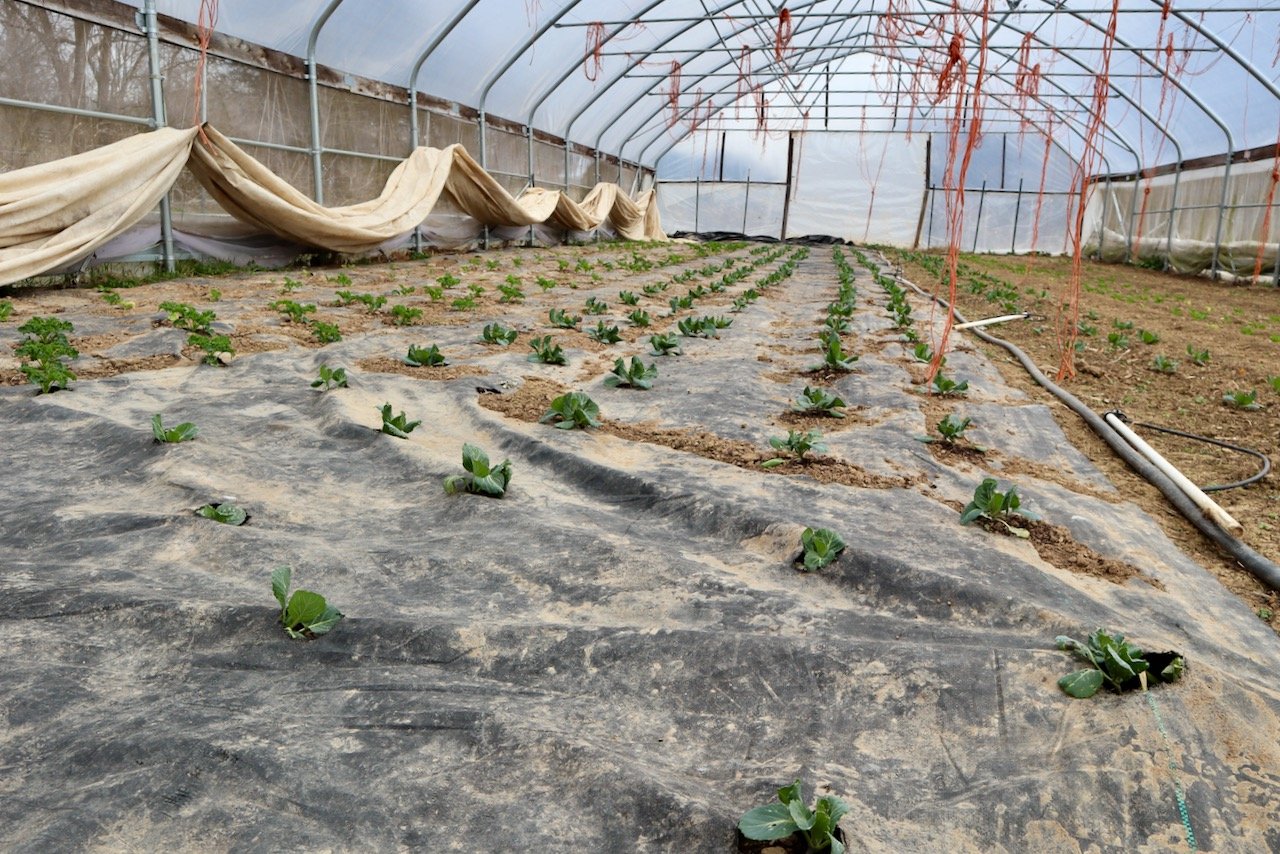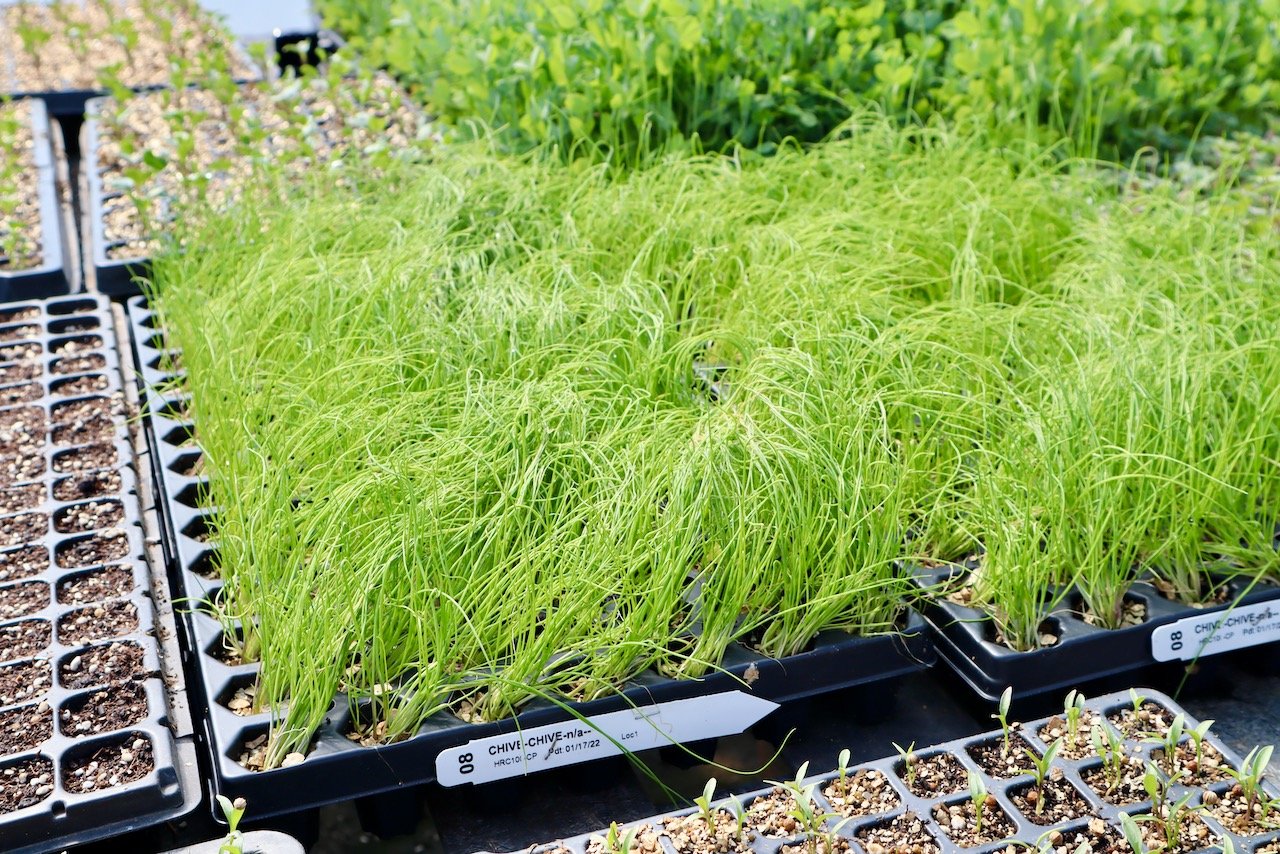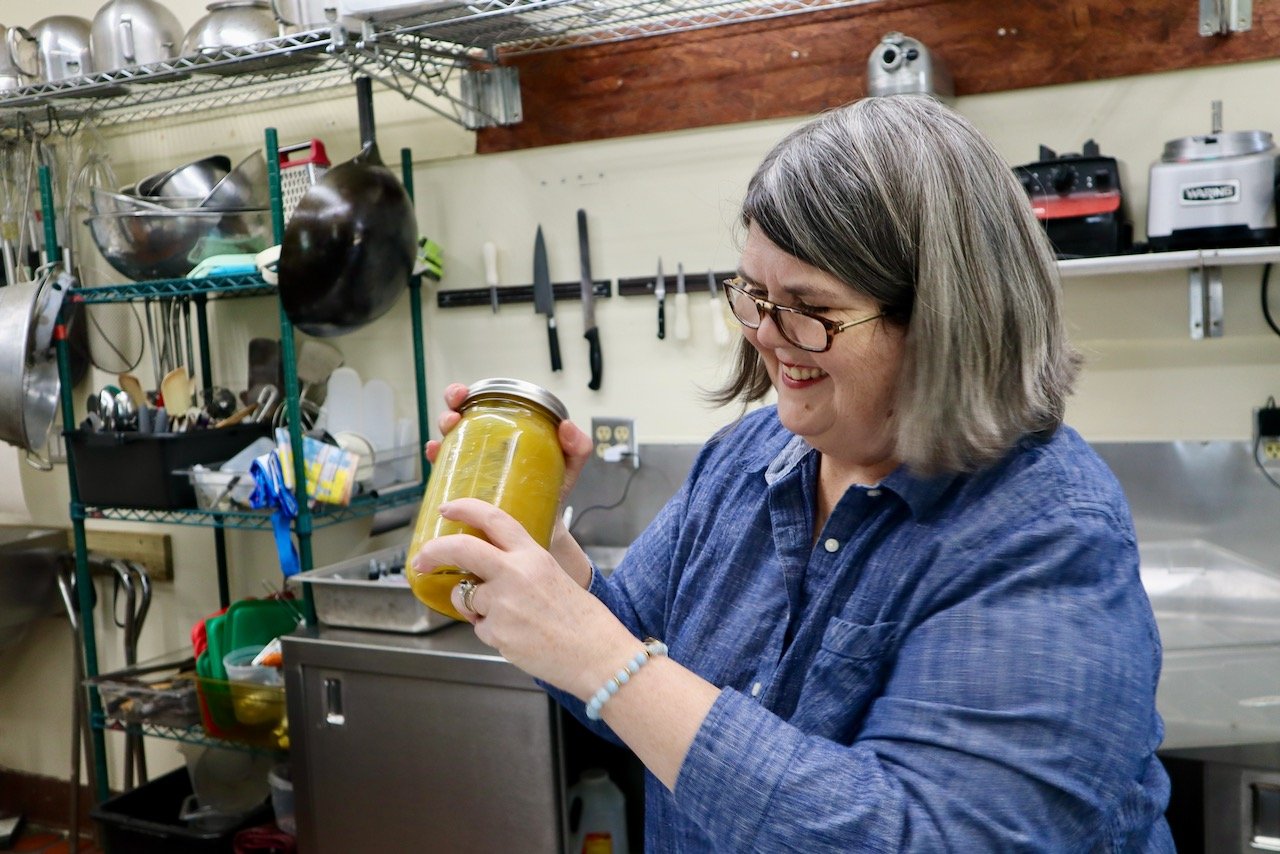Living Our Salad Days
written by Grace Rogers & photography by Talitha Schroeder
As the iconic rolling hills of central Kentucky lie dormant and gray in anticipation of the approaching warmth, bright spring colors can already be found in the hoop houses at Salad Days Farm.
We visited owner Maggie Dungan at her Woodford County market-garden last week to catch a glimpse of her winter crops and spring seedlings, and to chat about her journey as a small-scale organic grower in a world cut out for industrial-scale conventional farmers. After climbing the sunny slope to her production area populated by a large greenhouse and multiple high-tunnels, she observed, “I grew up on this road. My parents actually live down the road still.”
Before starting her farm, Dungan lived in Paris, Ky. but knew she wanted to be a grower. In 2015, she realized her dream and moved back home to cultivate the land.
“I’m all self-taught,” she says. Although she doesn’t recommend that approach, she notes that she learned by trial and error with some inspiration from the highly acclaimed writing of organic farmer Eliot Coleman as well as the beloved book The Market Gardener by Jean-Martin Fortier, who influenced her garden layout and production methods.
Because she jumped into the deep end without formal training, Dungan has continuously adapted her methods and designs to account for her growing business. She explains, “I’ve probably redone my irrigation four times … there was a lot of undoing and redoing, never thinking I would be this big.”
Dungan has been working with Holly Hill to provide fresh produce year round since 2016, when she met Ouita Michel at a conference. She remembers the excitement she felt when she received the first order of lettuce from Chef Sandy Allison. She says, “I didn’t feel like I knew what I was doing, and I was scared that I couldn’t provide consistently,” but she forged ahead and developed a strong relationship with the company.
The consistently outstanding quality of her produce won her a cherished spot in the hearts of Holly Hill’s chefs. Now, six years down the road, you can find Dungan’s produce on your plate at Holly Hill’s restaurants, even in the dead of winter.
Ultimately, her hard-won success has provided a much-needed resource to the community. Not only does Dungan bring “organic, nutritious, local food to people” in her rural location, she also supplies unique, rewarding jobs to local residents every year with a total of about six employees in the spring and summer and two employees year round. She says, “I enjoy being able to give employees this experience of being outside and working with local food.”
The opportunity to provide local jobs in sustainable agriculture year-round is part of what catalyzed Dungan’s interest in winter growing. Standing outside a greenhouse-like structure meant for in-ground growing known as a high tunnel, we caught a glimpse of her famous lettuce greens protected from the cold. She says, “we got our first high tunnel in 2016 through a National Resource Conservation Service (NRCS) grant, now we have five of them.” Dungan notes, “there’s just not enough farms providing during the winter. The market is there. People still eat, restaurants still buy, there’s still a farmers market.”
While most small-scale farmers take a breather for the winter, Dungan explains that she is able to emotionally sustain herself through the near impossible and always unpredictable work of running an agricultural business year-round through love for her customers and the knowledge that she is doing a good thing for her community and her land. She says, “I’m trying to take care of the earth and create a good future for it.”
On the tail end of winter, but not quite the cusp of spring, only two of her high-tunnels are currently in cultivation, yet Dungan’s weekly list of available produce for restaurants and other wholesale customers is still colorful and exciting; and her farm store is packed full of pea shoots, lettuce, spinach, eggs, and other delights.
As I reached into the self-serve cooler to buy some lettuce, I was surprised to hear the clanking of a repurposed gumball machine behind me. It was a resident goat attempting to steal food without paying the customary 25 cent fee—a sweet reminder of the small joys that populate the labor-intensive life of a grower.
© 2022, Holly Hill Inn/Ilex Summit, LLC and its affiliates, All Rights Reserved
Related Content
Salad for Ouita
Pamela Sexton wrote a poem called “Salad for Ouita.” It’s an ode to salads, a lyrical recipe. Chef Ouita built a salad with her mother’s poem as a guide and the contents of Holly Hill’s refrigerator as an inspiration. Where will Pam’s poem take you; what will go in your salad bowl?










